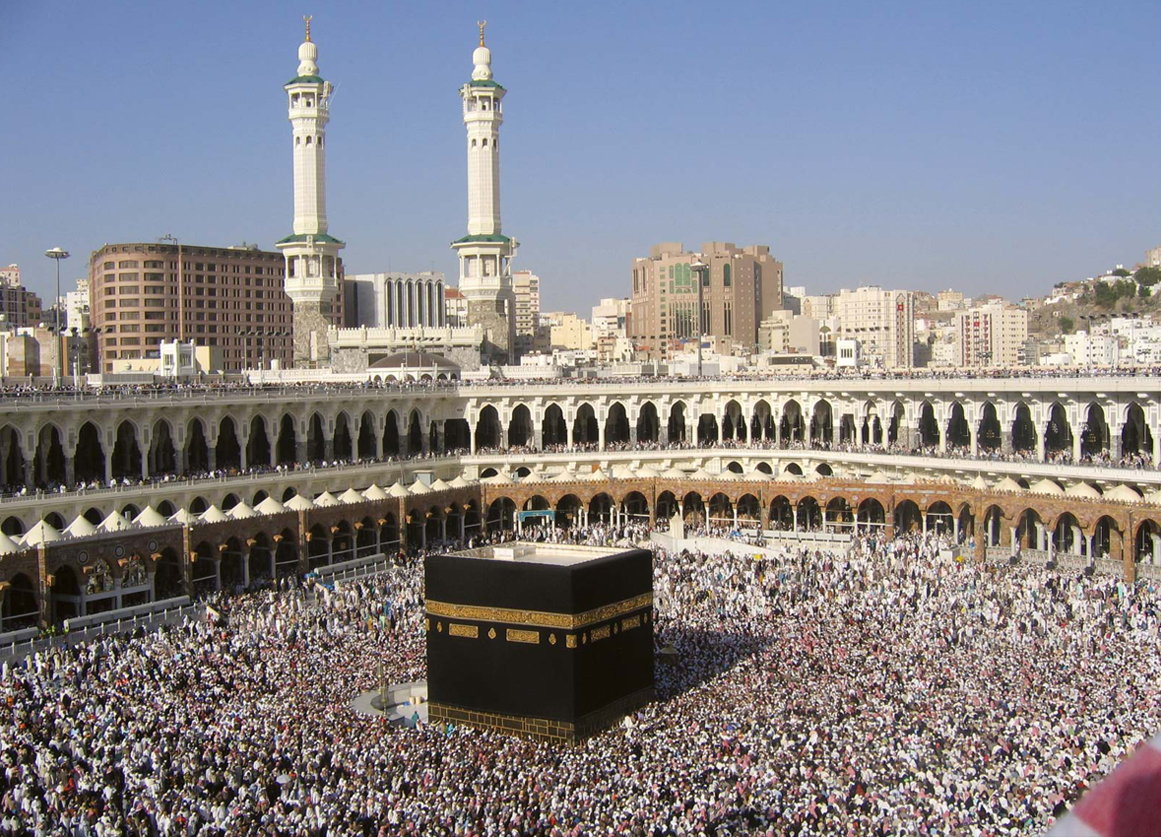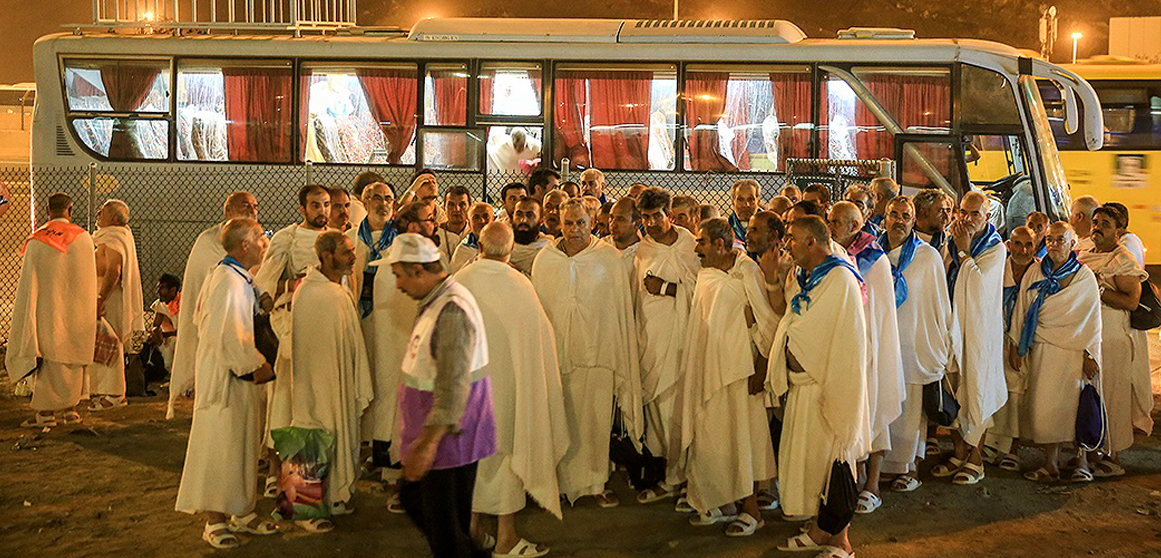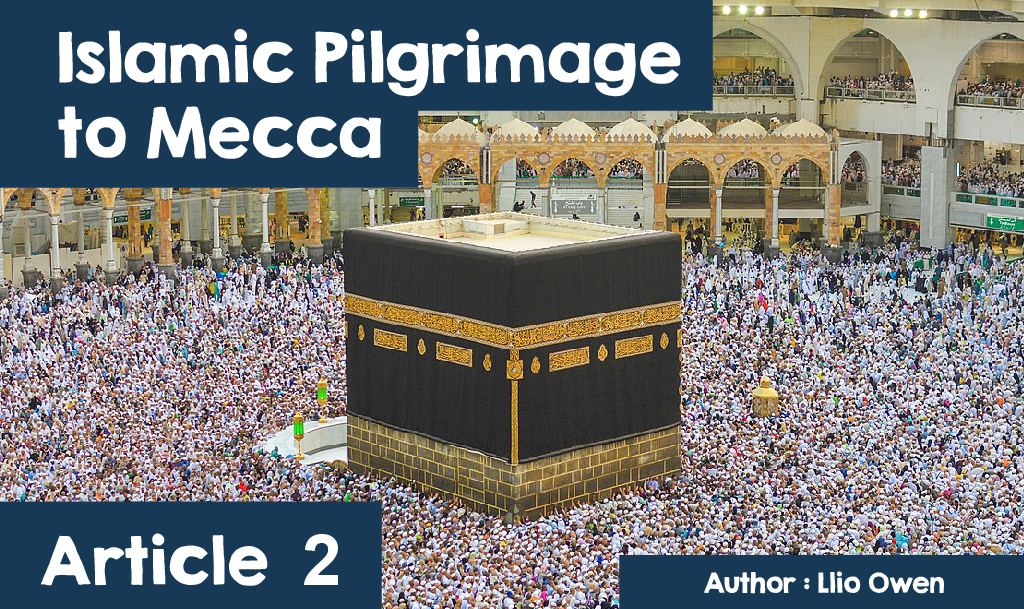Islamic Pilgrimage to Mecca
One of my favourite things to do is to go on holiday, from walking around Kraków's beautiful castle in Poland, to swimming in the wild seas of Nesebar, Bulgaria.
Which holiday was your favourite, and why?
For some, going on holiday involves more than enjoyment and forgetting about responsibilities that await for them at home such as school, for a week.

Krakow Castle | Traeth Nesebar
(Tim Adams, CC BY 3.0
Imagine if going on holiday was your duty! For Muslims across the world, including in Wales, it is their duty to go on holiday at least once in their lives.
Pilgrimage is what we call the journey they make. It is a sacred journey to a special place that has an important link to their religion. The name of the Islamic pilgrimage is Hajj. For Muslims, this special place is Mecca, a famous city located in Saudi Arabia, a country in the Middle East.
This pilgrimage is significant for Muslims because it is one of the five pillars: five key practices central to Islam that Muslims must fulfil.
This points to the importance of making this journey, as it sits alongside practices in Islam such as declaring faith in no other God but Allah, praying 5 times a day,
giving to help others, and observing a fast during Ramadan.
However, there is a criteria which allows some not to travel: those who are unable, if they have a disability, for example, or who cannot afford the journey.

For those who can, it's a very exciting but tiring journey! It's a long process that involves a great deal of organizing.
Hajj takes place in Dhul-Hijjah, the twelfth month of the Islamic lunar calendar, and preparations begin at home.
Many of pilgrims use a travel agent to help them get organized, and specific items, such as the Ihram, a white outfit that all men have to wear, have to be packed.
The Ihram symbolises equality between everyone on the Hajj.
No matter where you come from in the world, every Muslim has a strong desire to embark on this important journey, including people from Wales!
Aisha (not real name for privacy reasons) is a pupil from a school in north Wales, who is about to start her final term in year 8, has discussed her stories with me as her religious education teacher;
what she has done in preparation, and has discussed the trip to Mecca. "It's a very challenging journey," said Aisha. "We travel to a very hot country,
the temperature is very different to what we are used to in north Wales. In the hot weather, we weren't on a seaside resting, but on a holiday full of movement!
We walked for miles every day, and I was really tired at the end of each day.”
With the itinerary this person has shared with us, it's easy to see how tired Hajj can be! Let's take a look at Aisha's experience here in Mecca.

Kaaba, Mecca
(© ayazad/Fotolia)
On day one, Muslims go to the Great Mosque where they recite verses from the Qur’an and say prayers.
They walk around the ka’ba 7 times, and it reminds them to keep Allah central in life. Muslims believe that the Ka’ba was built by the Prophet Abraham and his son, Ishmail 4000 years ago.
On the second day, Muslims visit two mounts. These are called mount Safa and Mount Marwa.
Muslims walk seven times between the two. During each quarter mile walk, Muslims recite prayers.
This action helps the pilgrims to remember an important person named Hagar.
The walk represents how Hagar had to search for water for her son and her strong belief in God. A well still remains here and pilgrims drink from it.
Some even take water home to those who are unable to come on Hajj.
On day three, Hajj moves onto the Plain of Arafat. This is in the desert where Muslims ask God for forgiveness.
It is known as the “mount of mercy”, and it is important as this is where Muhammad preached his last sermon.
This is a very important part of Hajj. Pilgrims will stand from midday to sunset reaching out to Allah, feeling His presence.

Pilgrims move to Muzdalifah
(Fars Media Corporation - Creative Commons Attribution 4.0 International License.)
Day four the Pilgrims then move to Muzdalifah. This is a rough pebbled place where they eat, and collect stones for the following day. The stones are carried as the Muslims travel to Mina.
They use the stones they collected on the previous day to throw at large stone pillars as a symbolism for stoning the devil, an evil creature who tempts people away from the sacred religion.
Eid-Ul-Adha is the festival that ends Hajj. Here, men shave their heads and sacrifice animals as Abraham performed thousands of years ago. Everyone puts on clean clothes as a symbol that
they are a new person at the end of Hajj. They are new people as the experience that they have just been through was unlike any other. Aisha explained
how her outlook on life had completely changed after returning from Hajj. Her material, worldly problems now seemed insignificant, and she was able to focus her attention on what
really mattered most to her: her religion.
On day five, the Muslims return to Mecca once again, and walk back to the Ka’ba where they walk around it seven times once more. Once this is done,
the pilgrims gain a new name. Each man is now a ‘Hajji’ and each woman is now a ‘Hajja’.
Many, especially non-religious individuals, will question why making a trip like Hajj is so important to Muslims, why is it different from other trips?
For the followers of Islam, Hajj is a religious journey to be in the presence of their God, Allah, and to remove any sins and wipe the slate clean.
In addition, only Muslims are allowed to travel on Hajj, so they feel a special atmosphere in the presence of their religious community where they
can share spiritual experiences that strengthen their faith.


